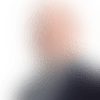Lyle Alzado was a throwback to the days before television, when the gridiron was patrolled by oversized coal miners and West Texas psychopaths.
Featured on Friday's edition of A Football Life, the former Denver Broncos and Oakland Raiders defensive end is also a symbol of a bygone football era, before steroids and gratuitous violence became stigmatized.
Alzado's 15-year NFL career has been tucked away in a dark corner of NFL history. It can't be trotted out before polite company in more politically correct times unless the sharp edges are blunted, the nuances emphasized, the contradictions made clear, the redemption realized.
Escaping an abusive father, Alzado came to the sport with an inferiority complex and a natural acceptance of violence. Football was his way out.
Known for his rage and hostility, Alzado was dubbed "Darth Raider" and "Three Mile Lyle" -- the latter a nod to the 1979 nuclear meltdown in Pennsylvania.
Alzado went on to earn Defensive Player of the Year honors in 1977 as the beating heart of the "Orange Crush" defense that carried the Broncos to Super Bowl XII.
One of the most ferocious pass rushers of the era, Alzado's strength and intensity overwhelmed offensive linemen. After an enraged Alzado pick up a helmet and flung it at New York Jets offensive tackle Chris Ward, the NFL enacted the "Lyle Alzado Rule," disallowing the use of helmets as a weapon.
"I could sic him on people like a Doberman," boasted former linebacker Tom Jackson, now an analyst with ESPN.
Although Alzado was physically fearless, he was emotionally unstable, harboring a deep-seated need to succeed no matter the cost. He turned to steroids, determined to do whatever it took to play football at the highest possible level.
"I never knew how much of Lyle was Lyle," Jackson added, "and how much of Lyle was steroids."
Disillusioned when the Broncos unloaded him on the Cleveland Browns in 1979, Alzado lamented, "There is nothing worse in this world than having people give up on you and not believe in you."
Alzado found his spirit home in 1982 with the Oakland Raiders, famous for welcoming the league's outcasts and renegades.
Prior to Super Bowl XVIII, Alzado made waves by threatening to rip the head off of Washington quarterback Joe Theismann. The Raiders' defense went on to shut down the highest-scoring offense in NFL history, holding the Redskins to just nine points in a blowout victory.
Finally calling it quits early in 1986, Alzado got out a year before the NFL began testing for steroids. Bolstered by HGH lifted from a cadaver, he went on to attempt an ill-fated comeback at age 41, four years later.
Not long after, Alzado was beset with brain cancer, believing it to be retribution for a profligate lifestyle.
"He made a deal with the devil," childhood friend Marc Lyons reasoned. "He got fame and fortune. And it was time for the devil to collect."
Alzado died in 1992, but not before coming clean as a "phony" who copped to his greatest faults and stood as a cautionary tale for young players tempted by steroids.
At first blush, Alzado's story is a tragedy. Friends and teammates speak of him as a charitable man with a big heart who wanted to do good but couldn't.
Dig deeper, though, and there is evidence of a colorful character and tortured soul who gave to others what he could not give himself.
Absent our colorful characters and tortured souls, sports would not only be cheapened but also unbearably dull.
The latest Around The NFL Podcast recaps the Raiders' shocking win over the Chiefs and previews every other Week 12 game. Find more Around The NFL content on NFL NOW.












